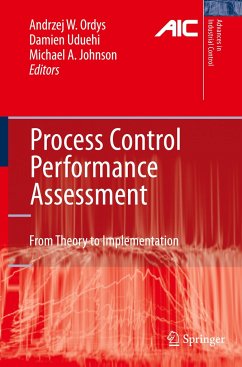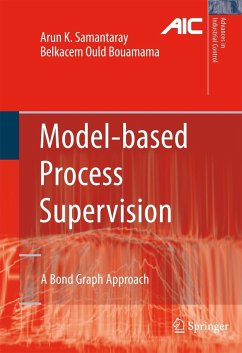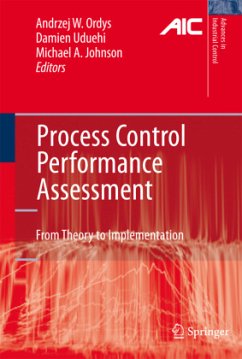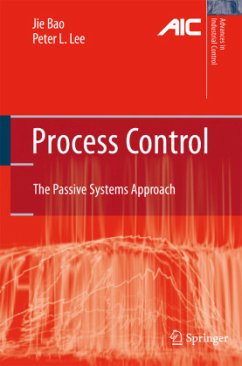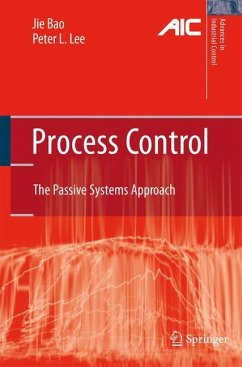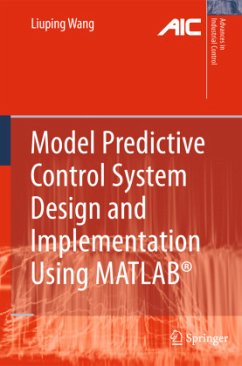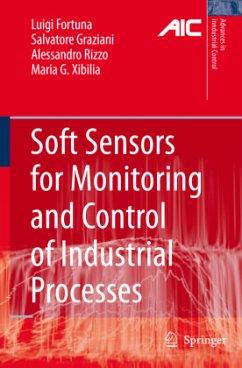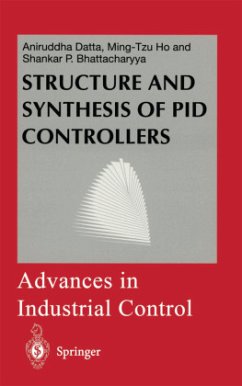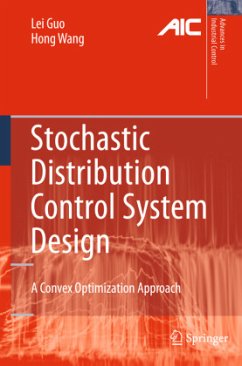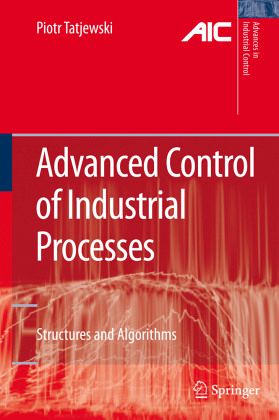
Advanced Control of Industrial Processes
Structures and Algorithms
Versandkostenfrei!
Versandfertig in 6-10 Tagen
113,99 €
inkl. MwSt.
Weitere Ausgaben:

PAYBACK Punkte
57 °P sammeln!
"Advanced Control of Industrial Processes" presents the concepts and algorithms of advanced industrial process control and on-line optimisation within the framework of a multilayer structure. Relatively simple unconstrained nonlinear fuzzy control algorithms and linear predictive control laws are covered, as are more involved constrained and nonlinear model predictive control (MPC) algorithms and on-line set-point optimisation techniques.Major topics and key features include: Derivation of practical MPC algorithms with linear process models; Development of computationally effective MPC structu...
"Advanced Control of Industrial Processes" presents the concepts and algorithms of advanced industrial process control and on-line optimisation within the framework of a multilayer structure. Relatively simple unconstrained nonlinear fuzzy control algorithms and linear predictive control laws are covered, as are more involved constrained and nonlinear model predictive control (MPC) algorithms and on-line set-point optimisation techniques.
Major topics and key features include: Derivation of practical MPC algorithms with linear process models; Development of computationally effective MPC structures for nonlinear process models, utilising on-line model linearisations and fuzzy reasoning; General presentation of the subject of on-line set-point improvement and optimisation; Complete theoretical stability analysis of fuzzy Takagi-Sugeno control systems; Illustration of the methodologies and algorithms by worked examples in the text and by results of simulations based on industrial process models.
Major topics and key features include: Derivation of practical MPC algorithms with linear process models; Development of computationally effective MPC structures for nonlinear process models, utilising on-line model linearisations and fuzzy reasoning; General presentation of the subject of on-line set-point improvement and optimisation; Complete theoretical stability analysis of fuzzy Takagi-Sugeno control systems; Illustration of the methodologies and algorithms by worked examples in the text and by results of simulations based on industrial process models.





